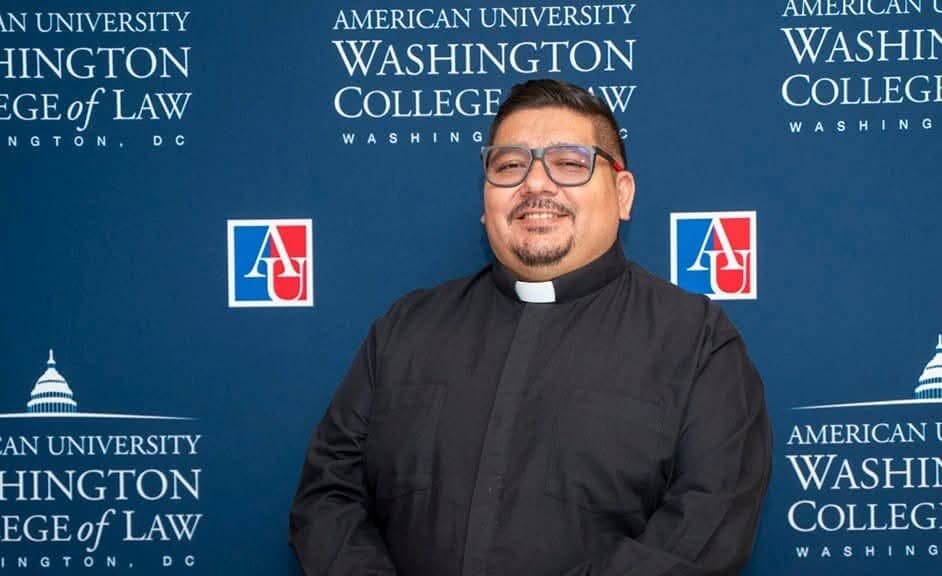NEW YORK – About a year after President Joe Biden signed an executive order to address the root causes of migration from Central America, immigration advocates are calling on his administration to adjust its approach both domestically and abroad.
The Feb. 2, 2021, executive order Biden signed led to the development of a root causes strategy that the administration released in July. The strategy prioritized addressing economic insecurity and inequality; strengthening democratic governance and values; and countering and preventing violence in El Salvador, Guatemala and Honduras – the origin of many migrants fleeing to the United States.
Although it’s still early in the long-term strategy, the Biden administration’s efforts haven’t yielded results as drivers of migration in the so-called Northern Triangle countries persist, and a record number of migrants continue to arrive at the U.S.-Mexico border seeking asylum and better opportunities.
“It is time for the Biden-Harris administration to fully lean into their Root Causes Strategy and produce the concrete changes that are so urgently needed,” Joseph Fleming, senior advisor for faith leader strategies with Faith in Action, said in a Feb. 2 statement.
Fleming is one of the 13 immigration advocates and scholars in Central America and the U.S. that contributed to the new report, “Year 1 ASSESSMENT of Biden-Harris Root Causes Strategy,” that was released on Feb. 2. The report is a part of the Root Causes Initiative, which is a coalition of grassroots and faith-based organizations in Guatemala, El Salvador, Honduras, Mexico and the U.S. that works to address the root causes of migration.
The report highlights that over the past year the rule of law has deteriorated in Guatemala and El Salvador, as political leaders in both countries “capture judicial systems, protect corruption, and violate human rights abuses.” Honduras remains one of the most dangerous places for journalists and civil society leaders, according to the report.
Given the similarities of the challenges in Guatemala and El Salvador the report questions the different approaches the Biden administration has taken with each country. It cites a “relatively hard line” that U.S. policy makers have taken with Salvadoran President Nayib Bukele through criticism of anti-democratic actions, passing on high-level meetings and economic sanctions.
Meanwhile, the Biden administration has “sent mixed messages” to Guatemala by not inviting them to the Democracy Summit, but holding a high-level meeting with Guatemalan President Alejandro Giammattei the day before the summit and not imposing any financial sanctions on those implicated in the country’s corruption.
Vice President Kamala Harris, who Biden has put in charge of the root causes strategy, traveled to Guatemala in June. She has not traveled to El Salvador. The report calls on the administration to encourage consistent rule of law standards in each country.
“Civil society leaders see a double standard in how the U.S. has approached impunity in Guatemala and other countries in the region,” the report states. “They view the mixed messages toward Giammattei as eroding U.S. credibility on rule of law and undermining efforts to address the underlying conditions driving migration.”
Harris traveled to Honduras at the end of January to support the inauguration of Honduras’ new president Xiomara Castro. The report calls on the Biden administration to use “all of the tools available” to support Castro and civic organizations working to “restore democracy, rule of law, and economic justice in the country.”
The report also calls for changes in the Biden administration to localize the foreign assistance it provides the Northern Triangle Countries, and create a more inclusive economic policy. It states the importance of the U.S. Agency for International Development giving grassroots and faith-based organizations a seat at the table to develop priorities and strategies, and simultaneously creating more funding opportunities for these organizations.
“At this one year mark we need to recognize that the Biden-Harris administration still has a once in a generation opportunity to change course in Central America and make meaningful change,” Dylan Corbett, the executive director of the El Paso, Texas, based Hope Border Institute said in a Feb. 2 statement. “To do so, this administration will have to recommit to listening and walking alongside local leaders who have a prophetic vision for the future of their communities.”
Another part of the Biden administration’s economic approach that the report questions is the use of $1.2 billion in investments from corporate companies – Mastercard, Microsoft, PepsiCo, among them – that Harris announced in December.
“It remains unclear how the focus on U.S. corporate investment squares with the emphasis in the Executive Order and Root Causes Strategy on inclusive economic growth, labor rights, and mobilizing domestic resources for development,” the report states. “These economic priorities focused on equity reflect the reality that decades of emphasis on foreign investment as a solution have not resulted in significant improvements in living conditions in Central America nor changed the calculus that leads many people to migrate.”
The last part of the report restates the need for the Biden administration to end the use of deterrent U.S.-Mexico border policies and restore the international legal right to asylum. The administration, and supporters of the policies, argue that the policies – Title 42 and the Migrant Protection Protocols – are needed to handle the record number of migrants crossing the border and dissuade migration.
The record number of about 1,735,000 southwest land border encounters by the U.S. Customs and Border Protection in Fiscal Year 2021 suggests the policies aren’t dissuading migrants from crossing the border. There haven’t been any signs that the influx of migrants has slowed down. The number of southwest land border encounters reported by CBP were about 175,000 and 179,000 in November and December.
The report also notes that many immigration organizations believe the administration’s deterrence approach to migration has “weakened U.S. diplomatic leverage over rule of law issues while increasing the revenue and reach of criminal enterprises engaged in human smuggling and extortion.”
Follow John Lavenburg on Twitter: @johnlavenburg















